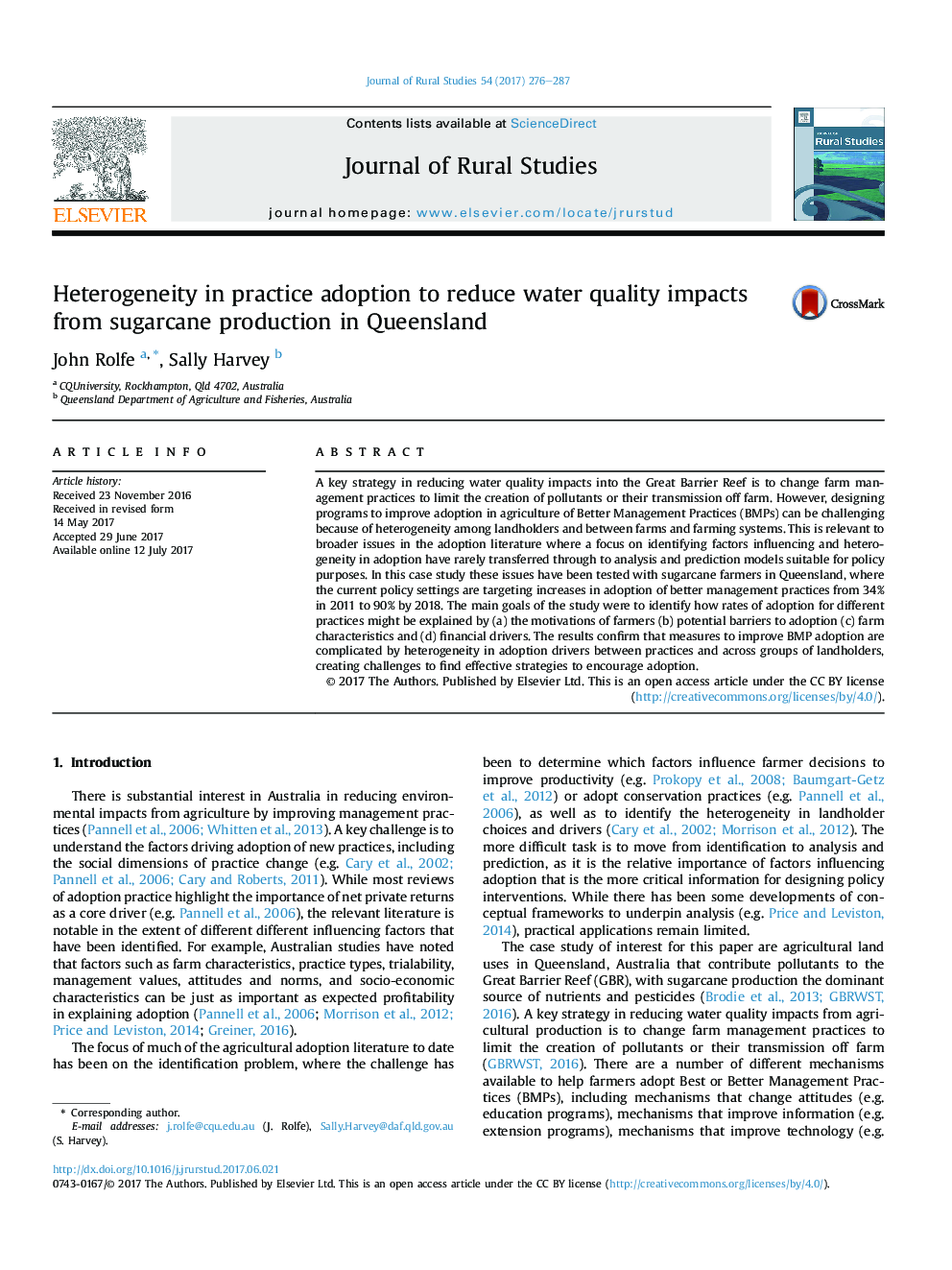| Article ID | Journal | Published Year | Pages | File Type |
|---|---|---|---|---|
| 6460060 | Journal of Rural Studies | 2017 | 12 Pages |
â¢Rapid adoption of better management practices is needed to reduce pollutants into the Great Barrier Reef.â¢Workshops have been run with sugarcane growers to identify reasons for slow adoption.â¢Factor analysis identified four groups of motivations and four groups of barriers for adoption.â¢Financial factors are important drivers of adoption decisions because these align with key motivations.â¢There is substantial heterogeneity in drivers and barriers to adoption across practices and farmers.
A key strategy in reducing water quality impacts into the Great Barrier Reef is to change farm management practices to limit the creation of pollutants or their transmission off farm. However, designing programs to improve adoption in agriculture of Better Management Practices (BMPs) can be challenging because of heterogeneity among landholders and between farms and farming systems. This is relevant to broader issues in the adoption literature where a focus on identifying factors influencing and heterogeneity in adoption have rarely transferred through to analysis and prediction models suitable for policy purposes. In this case study these issues have been tested with sugarcane farmers in Queensland, where the current policy settings are targeting increases in adoption of better management practices from 34% in 2011 to 90% by 2018. The main goals of the study were to identify how rates of adoption for different practices might be explained by (a) the motivations of farmers (b) potential barriers to adoption (c) farm characteristics and (d) financial drivers. The results confirm that measures to improve BMP adoption are complicated by heterogeneity in adoption drivers between practices and across groups of landholders, creating challenges to find effective strategies to encourage adoption.
